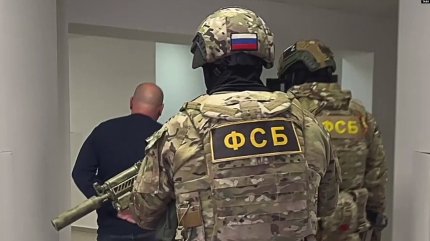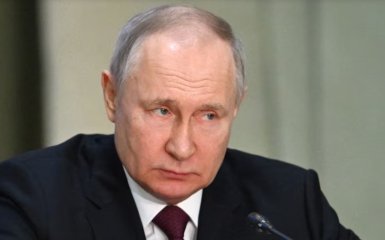In Russia, after the Kremlin started a criminal war against Ukraine, the number of accusations of treason and cases of prosecution on charges of espionage increased significantly.
Points of attention
- The number of accusations of treason and cases of prosecution in Russia significantly increased after the Kremlin's criminal war against Ukraine and the annexation of Crimea.
- The Federal Security Service (FSB) leads investigations into cases of treason, often resulting in strict isolation, closed-door trials, and long prison terms for the accused.
- The expanded legal definition of treason in 2012 led to prosecutions for actions as ordinary as communicating with foreign colleagues or supporting Ukrainian charities.
- The intensification of the hunt for traitors is driven by the FSB's belief in the need to strengthen its status and the authorities' paranoia about regime fragility during political upheavals like mass protests or the war with Ukraine.
- The surge in treason prosecutions was fueled by regional FSB units seeking to curry favor with leadership, as well as the genuine belief within the FSB in the fragility of the regime under certain circumstances.
What is known about Putin's large-scale "hunt" for traitors in Russia
Such cases are almost exclusively investigated by the Federal Security Service (FSB), and specific allegations and evidence are not always disclosed. The accused are often held in strict isolation in Moscow's notorious Lefortovo prison, tried behind closed doors and almost always sentenced to long prison terms, the publication says.
According to the human rights group "First Department", during 2023, more than 100 known cases of accusations of treason were recorded in Russia.
According to the representative of the human rights group, lawyer Yevhen Smirnov, the authorities are hiding about 100 similar cases from the public.

The number of cases of high treason began to rise after 2014, when Russia illegally annexed Crimea from Ukraine and fell out with the West for the first time since the Cold War.
The authors of the article emphasize that two years earlier, the legal definition of treason was expanded to include the provision of vaguely defined "aid" to foreign countries or organizations, effectively making anyone who contacts foreigners liable to prosecution.
Smirnov emphasized that since 2018, accusations of treason and arrests of Russian scientists have increased.
Russians have been charged with treason - or less serious charges of "preparation for treason" - for actions such as donating money to Ukrainian charities or groups fighting on the side of Ukraine, setting fire to military commissars in Russia and even making private phone calls to friends in Ukraine with the reason for moving there.
What makes the Russian authorities paranoidly look for traitors
According to experts, several factors motivate the authorities to initiate new cases of treason.
This gives a clear signal that the unwritten rules have changed, and that scientists should no longer hold conferences abroad or work with foreign colleagues, - explains investigative journalist and security services expert Andriy Soldatov.
It's also easier to get higher authorities to devote resources to a treason case, such as surveillance or wiretapping, he said.
According to Smirnov, the surge in prosecutions occurred after the FSB in 2022 allowed its regional units to prosecute certain types of treason, and officials in those units sought to curry favor with their leadership in order to move up the career ladder.
In addition, according to Soldatov, this is a sincere and widespread belief of the FSB in the "fragility of the regime" during political upheavals - either as a result of mass protests, as in 2011-2012, or now, during the war with Ukraine.

